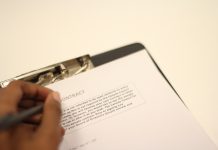Earlier this month, Professor Emmett Macfarlane called out Feds for their neutrality on an academic boycott against Israeli institutions. In a series of tweets, Macfarlane called the referendum “outrageous” and publicly debated with Maaz Yasin, Feds VP Internal. The discussion sparked a buzz among participants in the campaign.</p>
Ethical Collaboration’s Palestine Solidarity Action Group, an offshoot of the Waterloo Public Research Interest Group, initiated a petition last October to boycott five Israeli academic institutions. The group actively supports the Boycott, Divestment, and Sanctions (BDS) movement which campaigns for schools to take action against perpetuating occupation in Palestine.
After garnering over 4,000 signatures, the group submitted a proposal to Feds for a referendum. Presently, a yes and a no committee are campaigning for votes in the referendum under the supervision of Feds. The boycott will be decided in a referendum Jan. 25.
Macfarlane, after being approached to advise in the referendum, took to Twitter to denounce the idea. Macfarlane’s first tweet read “so @UWFeds, the student gov’t @UWaterloo, is holding a referendum on severing ties to Israeli universities. Outrageous.”
He followed up later with “The BDS movement is contrary to the very principles any university community should hold dear.”
In an interview, Macfarlane explained how he thought the petition contrasted the idea of academic freedom.“I think the idea of boycotting or severing ties with reputable academic institutions is contrary to the very idea of what universities stand for,” he said, adding later that “there are Palestinian scholars at the universities who would be negatively affected by a boycott.”
Macfarlane explained how the situation might differ if students wanted to boycott American universities.
“There are a lot of foreign policies of the United States that people might be concerned about from a human rights perspective. The wars initiated following 9/11, Guantanamo Bay, and abuses of the Geneva Convention and prisoner of war convention. No one would put up with the idea that we severed ties with American universities as a result of the actions of American government.”
During the discussion on Twitter, Macfarlane questioned some aspects of Feds’ bylaws, taking issue with the possibility of a referendum for any petition that gets over 2,900 signatures.
“Sometimes governments — including student governments — must make a stand on principle,” Macfarlane wrote. He then stated that Feds should not remain neutral on certain topics.
Macfarlane told Imprint that “Feds has no authority or jurisdiction over this. All that Feds can do is make a request to the university that ultimately, I would expect and would hope, would just be ignored. So it is kind of an exercise in futility to begin with … But I don’t know that Feds would entertain any referendum idea that came before them even if it had the signatures to support that went against other principles they might value.”
When asked if they would govern instead of remain neutral should a referendum violate school values, Stéphane Hamade, Feds VP Education, indicated they would not.
“I think what’s important is that it’s the Federation of Students. It’s really students that are our bosses and we listen to students.”
Ultimately, Macfarlane hopes that Feds will govern more.
“I think that Feds are also there to provide political leadership. So I don’t think we should treat any government, including a student government, as simply there to just be an impartial umpire.”
However, if Feds does not have jurisdiction over this as Macfarlane points out, should they be the ones to immediately govern the petition?
When asked how Feds felt about Macfarlane’s comment regarding their neutral position in the referendum, Hamade said: “In this case I think we want to hear what students have to say and I think it’s our role to really listen to what the students’ opinion is and that’s the best we can do right now.”
Jana Omar, a participant from Ethical Collaboration, explained her thoughts on Feds holding the separation referendum.
“We had sufficient support of the student body in order to have this referendum. We won it very fairly,” she said.
Omar indicates that much of the criticism Ethical Collaboration has received, including Macfarlane’s tweets, has lacked democracy.
“The criticism [we have received] is directed in the undemocratic sense that we see in Macfarlane’s tweets. This criticism has come in the form of attempting to stifle any dialogue or dissent as opposed to actually debating us on the issue.”
One of Macfarlane’s tweets read “I wouldn’t want a referendum every time 4,000 idiotic Canadians dreamt up a petition.” He also indicated in his interview that “it is very easy to collect signatures for a petition for this sort of thing, to say ‘well do you support human rights? If so sign here.’”
Omar strongly opposes the idea that Ethical Collaboration unethically garnered any signatures.
“I think it’s misleading to make his followers believe we got this referendum through any misleading way. I think it’s also very concerning to think that such debate can’t be had on campus when in reality we are not some group that just sprang out of the ground.
“It is very concerning that a political science professor doesn’t want to have this debate, and instead just wants to stifle it. It makes me wonder how he deals with such controversy in his own classes,” she said.
Macfarlane said that should the referendum go through he will strongly oppose it.
“I’ll be front line and center in objecting to that and fighting to make sure the university ignores it entirely.”
—–
CORRECTION: This article has been edited as it previously stated that the academic institutions named in the petition were Palestinian.






























